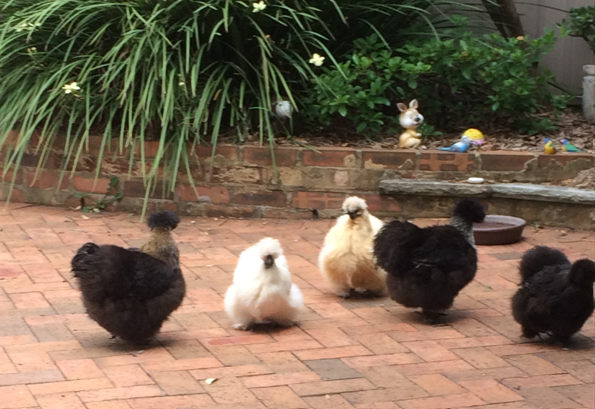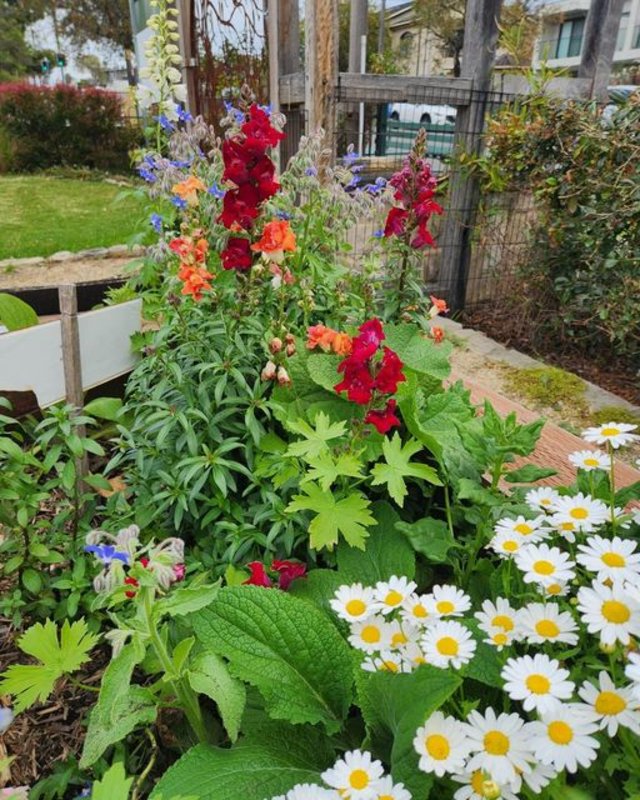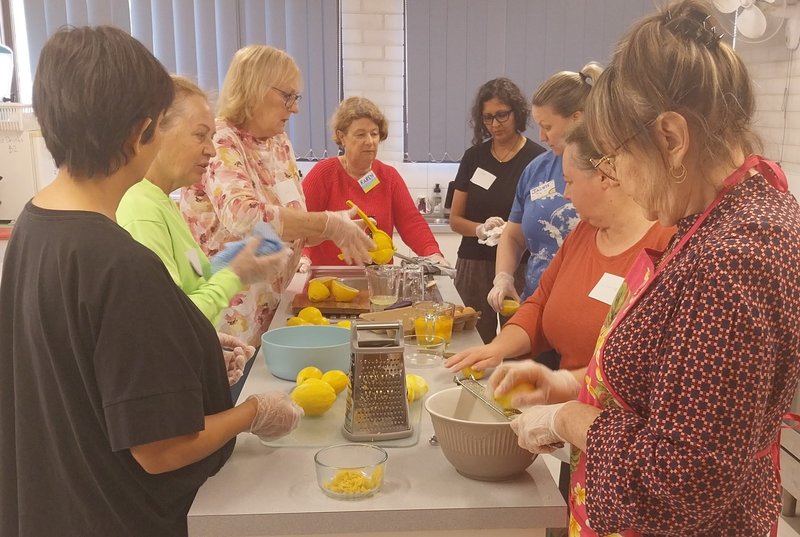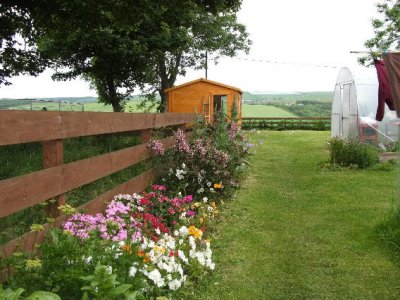Warrigal
SF VIP
- Location
- Sydney, Australia
"A garden is a lovesome thing, God wot!" is a line from a poem by Thomas Edward Brown (1830-1897)1. The poem describes the poet's garden filled with all that came to his mind: grotto, pool, ferns, roses, fish, and more1. The phrase "God wot" is an archaic expression meaning "God knows"1. The poem is a reflection on the beauty of nature and the love of God2.
It certainly is a lovely thing, especially if it is an old garden that has shady places to sit and relax, or a veggie garden where we can grow fresh vegetables.
My back garden is my delight and also my cloistered sanctuary. I share it with 5 (free range) pet hens, an elderly cat and a possum that visits at night for the feed of fruit that I put out after dark.
Because of the little chookies, I notice a few other wild birds becoming rather bold and sharing their scraps and laying pellets. Most regular are a pair of pied currawongs but I also see a white cockie and a crested pigeon starting to make daily visits.
These are my little hens. Their names are Betty (White), Ginger (Rogers), Goldie (Hawn), Ruth (Bader Ginsberg) and Colin.

A pied currawong. I have a nesting pair in the gum tree out the front

It certainly is a lovely thing, especially if it is an old garden that has shady places to sit and relax, or a veggie garden where we can grow fresh vegetables.
My back garden is my delight and also my cloistered sanctuary. I share it with 5 (free range) pet hens, an elderly cat and a possum that visits at night for the feed of fruit that I put out after dark.
Because of the little chookies, I notice a few other wild birds becoming rather bold and sharing their scraps and laying pellets. Most regular are a pair of pied currawongs but I also see a white cockie and a crested pigeon starting to make daily visits.
These are my little hens. Their names are Betty (White), Ginger (Rogers), Goldie (Hawn), Ruth (Bader Ginsberg) and Colin.

A pied currawong. I have a nesting pair in the gum tree out the front

Last edited:




